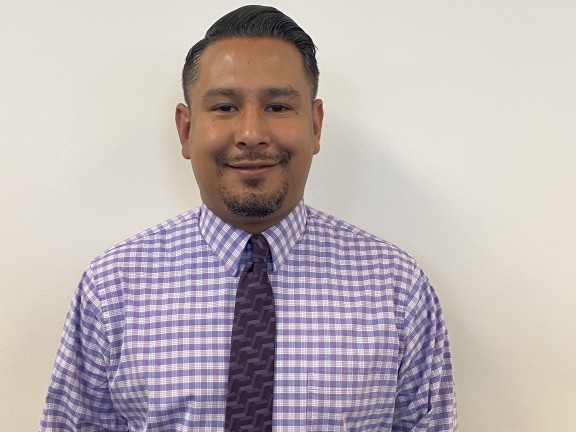Volcker Alliance Spotlight: Vincent Cordero on the Los Angeles "Targeted Local Hiring Program"

This Volcker Alliance spotlight focuses on the work of Vincent Cordero, a Chief Personnel Analyst for the City of Los Angeles’s Personnel Department. Cordero has been in public service for over fourteen years. He was the manager of the Targeted Local Hiring Program (TLHP), an innovative workforce development program for entry-level jobs in Los Angeles.
Workforce development programs focused on entry-level jobs are a timely topic. The COVID-19 pandemic is forcing millions of people out of work around the country. Unemployment numbers are already breaking records—only 45 percent of Los Angeles County residents remain employed as of April. Cordero predicts that demand for entry-level jobs will rise with the wave of newly unemployed Angelenos. Los Angeles’ TLHP is poised to respond with over 6,000 applicants in the TLHP pool.
The TLHP was created in 2017 when the Coalition of City Unions and the City of Los Angeles made a mutual commitment to implement innovative workforce development strategies to meet the needs of City residents and stakeholders, strengthen delivery of City services, and provide career opportunities to local residents. Even before the COVID-19 pandemic, economic insecurity was a significant challenge in Los Angeles. In 2019, tens of thousands of Angelenos were homeless. In 2018, roughly one third of residents in the Los Angeles area lived in poverty, earning less than $28,000 a year, leaving families struggling to meet their basic needs. Compared to the rest of the US, economists predict that the looming recession triggered by the pandemic will hit California the hardest. Cordero worries that the economic insecurity of Angelenos will be greatly exacerbated.
The TLHP will be a critical part of the City of Los Angeles’ response to the oncoming recession. The City of Los Angeles has full-time municipal government jobs available, and the TLHP offers a pipeline to access these jobs—jobs that not only keep the city running but also provide employees economic security. Below are excerpts from an interview with Cordero in which he shares his thoughts about the power of TLHP to transform the lives of its participants and the value this workforce development program has as part of the City of Los Angeles’ strategy to help Angelenos during the pandemic.
- What is TLHP? What do you think sets it apart from other workforce development programs?
TLHP serves Los Angeles residents who have traditionally faced barriers to steady employment, including homeless and formerly incarcerated individuals. The program uniquely provides an alternative pathway to permanent entry-level jobs, aiming to expand reach and accessibility to a wider range of job seekers in an expedited manner. In lieu of a traditional paper and pencil civil service exam, TLHP assesses the competencies that would have been tested during the first six months of employment which serves as the on the job training period. During these first six months, employees work full-time and receive benefits. If the hires successfully complete the on the job training period, they go on to serve a six-month probationary period before becoming permanent City employees with Civil Service status.
Since launching in 2017, TLHP has filled over 900 high-need permanent jobs across more than 35 City departments, including the Los Angeles International Airport, Police Department, and the Public Library.
- How has TLHP impacted the lives of participants?
The program’s impact on the lives of its participants and the community is far-reaching. Many participants were struggling to provide for their families. Others had never had health or dental benefits before working for the City. One TLHP participant spent three years unsuccessfully applying for a job at the City of Los Angeles. With help from the City’s WorkSource Centers, offices that provide free employment services, he was able to navigate the application process and four months later started as an Office Trainee at the City’s Department of Public Works, where he uses his technology skills to improve the Department’s web presence. He describes TLHP as the “gateway” to his employment with the City and “key” to his future.
- Why did you start working for the City of Los Angeles?
I began working for the City of Los Angeles in 2006 after receiving a master’s degree. I was drawn to a career in public service because it allowed me the opportunity to give back to the community in which I was born and raised by directly improving residents’ lives. I was able to do exactly this by helping connect community members to secure jobs that deliver vital public services.
Working in city government has not only been tremendously rewarding but it has also provided me opportunities to grow professionally and advance in my career. I was recently promoted to oversee recruitment and hiring for the City’s Public Safety Division, where I get to apply what I learned from TLHP to improve hiring processes for the City’s first responders, such as firefighters and police officers, who protect our community and are on the frontlines of COVID-19.
- What do you think is TLHP’s relevance amid the COVID-19 crisis?
I believe the program is needed now more than ever. Not all Angelenos are being affected equally during these unprecedented times. Even before the crisis, vulnerable communities experienced barriers to stable employment despite a strong job market, and now they are bearing the brunt of the economic fallout.
We need to be able to connect the City's underrepresented populations to good paying jobs that provide paid sick leave and health insurance. As job losses continue to grow, this program can play a role in our city’s economic recovery, while filling longstanding gaps in our workforce. I believe the network of partners and resources that TLHP has built can meet that challenge.
The City of Los Angeles has become a member of the Government-to-University (G2U) Regional Council in Los Angeles County, which launched earlier this year with 20 partners from universities, community colleges, and governments at all levels from the region. I hope G2U will elevate the program and inform more local partners about its importance. Downstream, I hope other municipalities and jurisdictions around the country learn more about it and are inspired to replicate and adapt the program.

